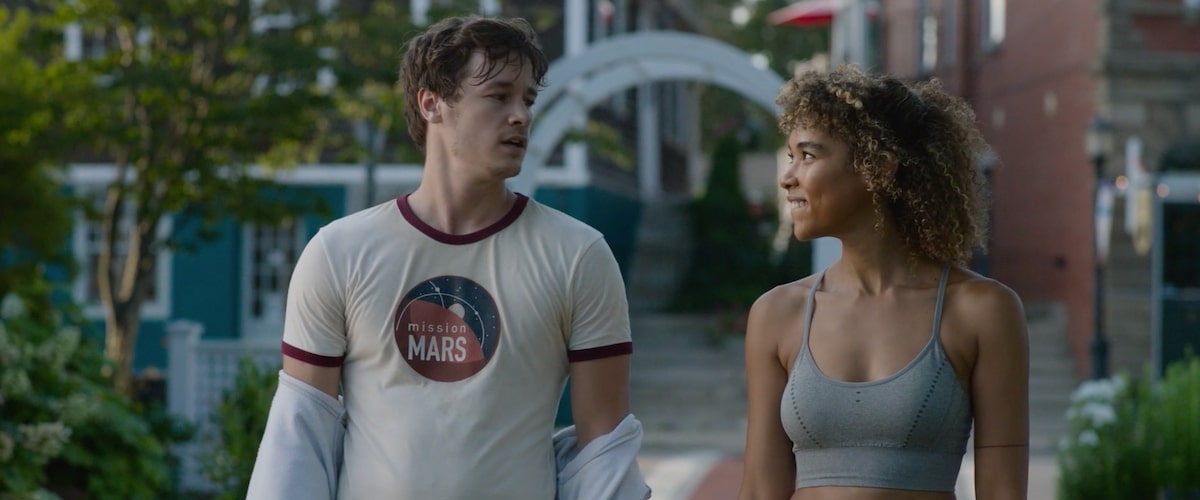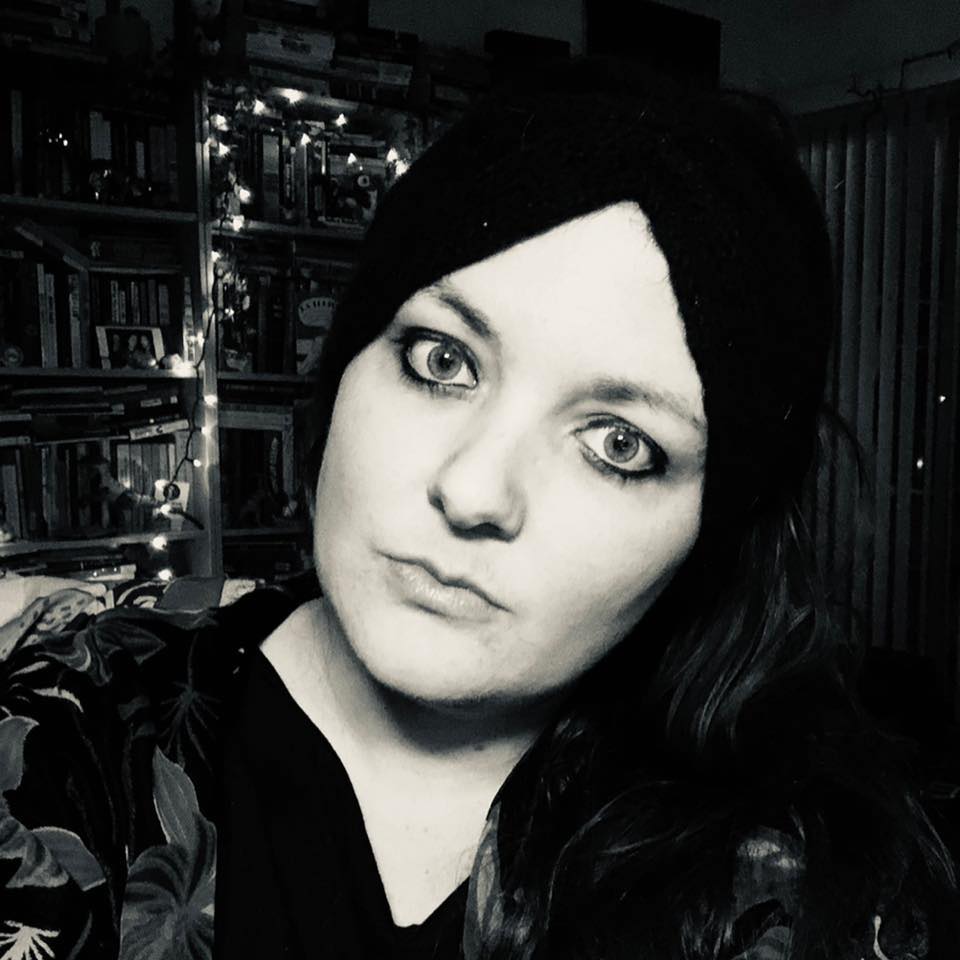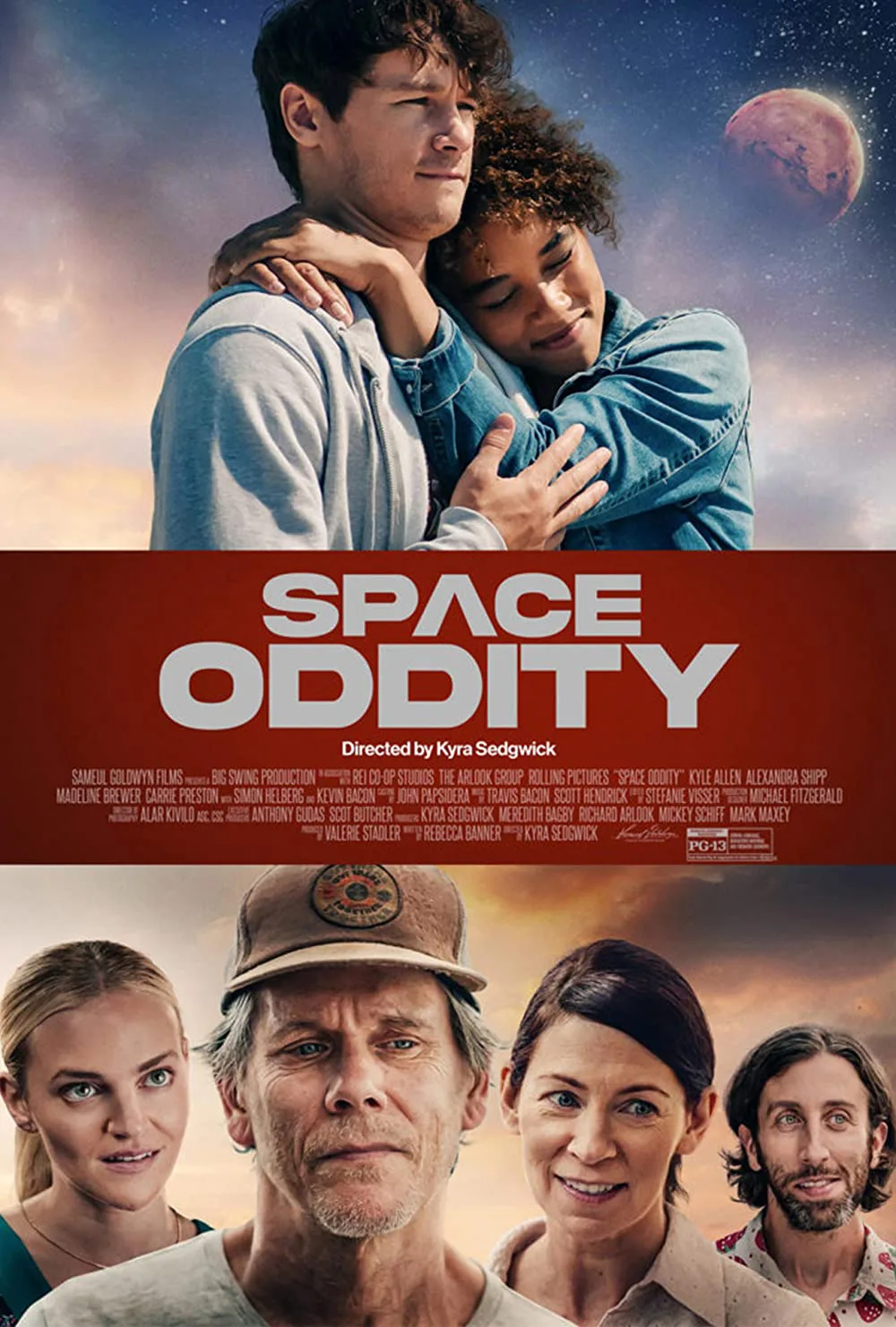A young man named Alex (Kyle Allen) narrates life on Mars to himself in the mirror. He’s in training for a colonization project. “This is where I’ll die,” he says as a picture of the red planet fills the frame. Whether to interpret this plan as a bleak ending or a hopeful new beginning belongs to the interpreter. For the nihilistic Alex in director Kyra Sedgwick’s film “Space Oddity,” this is the only future he can envision for himself.
The film is named for one of David Bowie’s most popular songs, which uses a similar narration style to tell the tale of an astronaut named Major Tom, who thinks of fame, and of his wife as he unknowingly floats towards oblivion in a broken spaceship. The vast emptiness of space and Tom’s impending death contrast with the life he left behind on Earth. It’s in this same milieu of contrasted feelings—of life and death and hope and ignorance—that screenwriter Rebecca Banner anchors the film’s emotions.
Set on a flower farm in rural Rhode Island, Alex is an engineer whose career was derailed by the death of his older brother Tom. Drowning in his grief, coupled with the knowledge that he’s living on a dying planet, Alex decides his future lies in the stars. One day he gathers his family together to tell them he’s been accepted to a privately funded mission to colonize Mars and that after ten more years of rigorous preparation, he’ll be leaving Earth forever.
His mother, Jane (Carrie Preston), herself still recovering from the death of her other son, is supportive of the idea because at least the training gets him out of bed in the morning. His stoic father, Jeff (Kevin Bacon), goes along with it as well, although he also tries his best to convince Alex to use his superior intellect to help with their failing flower instead. His sister Liz (Madeline Brewer), an ambitious public relations exec, thinks the entire program is a scam and can’t understand why her parents are indulging in his delusions.
All of Alex’s plans are thrown for a loop when he meets-cute with an ex-swimmer turned insurance agent named Daisy (Alexandra Shipp). From here, the standard romantic comedy plot machinations take care of themselves, with Alex and Daisy opening up to each other as they spend time together taking first aid classes and watching fireflies light up the forest at night. Shipp’s bright smile and natural charisma make her an ideal rom-com lead, but unfortunately, Allen seems to have taken his dramatic cues from Jamie Dornan in “Wild Mountain Thyme,” unable to root his performance in any kind of realistic emotions.
Allen’s mawkish performance aside, the rest of the cast do the best they can within this all too easy structure. Preston at first plays Jane almost too feeble, but a turn late in the film gives her a proper showcase and fleshes out the internal struggles of the character. Meanwhile, the evolution of Bacon and Brewer’s prickly father-daughter relationship proves to be such a rewarding aspect of the film it’s a shame it wasn’t more of a focus. As Liz’s icy exterior melts to reveal her shared love of growing flowers, there could have been a richer exploration of the resurgence of back-to-the-land movements that would contrast nicely with Alex’s solution of leaving the earth completely.
Instead, much of Banner’s script chooses to tackle the same thematic issues of Paul Schrader’s “First Reformed,” from the grief and guilt over a loved one’s accidental death to the difficulty of choosing anything beyond nihilism for the future with the knowledge that our blue planet is spiraling towards destruction. Where Schrader’s script finds no easy answers for this brand of despair and pointedly does not pass judgment over those who succumb to it, Banner’s script clearly sees Alex’s choice to seek a future in the stars as a selfish one.
A Brandi Carlile cover of “Space Oddity” plays as he hits his breaking point. A quick montage featuring shots of his family interspersed with shots of an overly dry, cracked desert and raging forest fires flashes across the screen as he angrily says to himself in the mirror, “You want me to stay. You want me to choose this uninhabitable, ruined planet. I’m sure you look up at the stars and wish you were here too, but you’re not.”
Of course, because this is a rom-com, this justified anger is no match for the power of love. Banner proposes that the answer to Alex’s nihilism and the cure for his “selfishness” is as simple as finding a life partner, choosing optimism, living your life with purpose, and embracing the love of your family.
Bowie’s song ends bittersweetly, with the narrator singing, “planet Earth is blue, and there’s nothing left to do.” Similarly, Sedgwick ends her film with a zoomed-out portrait of our blue planet. “This is where I live,” Alex’s narration tells us. We’re meant to feel uplifted, and for a moment, we are. But despite the film’s rosy resolution, as the film fades to black, the fact that we are still on a dying planet continues to loom large.
Now playing in theaters.




















